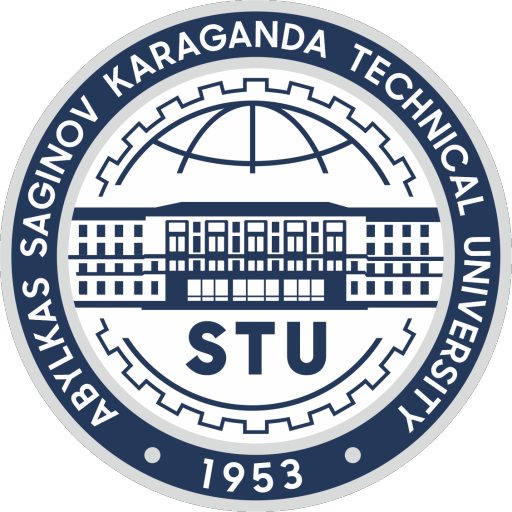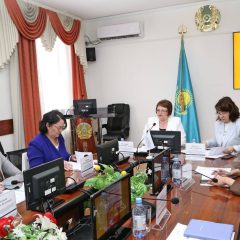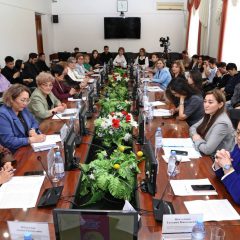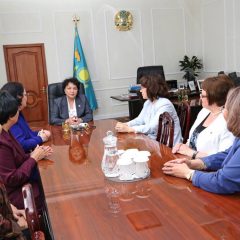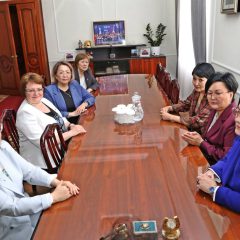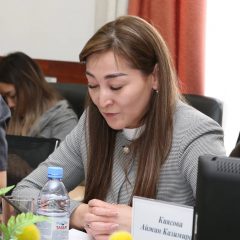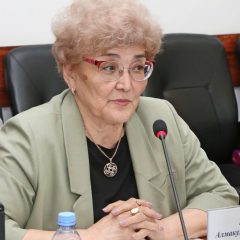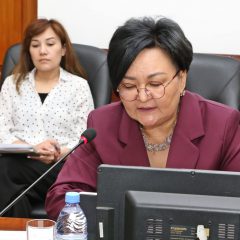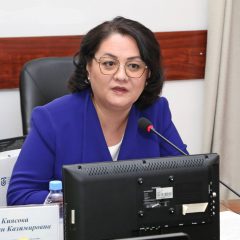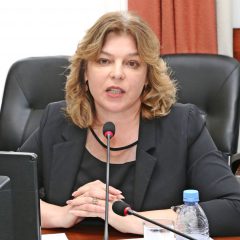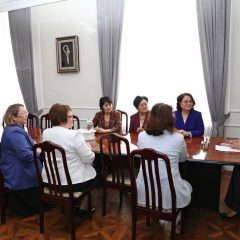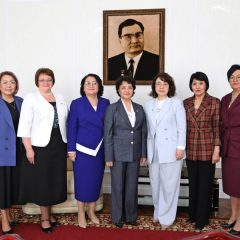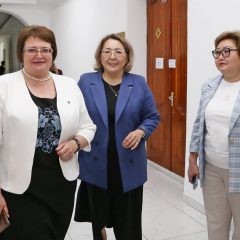This topic was the subject of a round table discussion held on April 28 at the Abylkas Saginov Karaganda Technical University, organized by trade union center of the Karaganda region of the federation of trade unions of the Republic of Kazakhstan. It was timed to coincide with the celebration world day for safety and health at work.
In the round table was attended by representatives of territorial structures of industry and local trade unions of the Karaganda region, labor inspection, experts in the field of labor protection, women leaders of commissions on women’s affairs and demographic policy, and student youth.
Addressing the participants of the round table with a welcoming speech, the deputy chairperson of the trade union center of the Karaganda region of the federation of trade unions of the Republic of Kazakhstan Tatyana Shatokhina noted that the current year is significant in that it has been declared the year of working professions by the head of state. At the same time, this is also the year of the 120th anniversary formation of trade unions in Kazakhstan. The choice of one of the leading technical universities of the country as a venue for the round table is due to the fact that Abylkas Saginov Karaganda Technical University was and remains a forge of technical personnel for the Karaganda region and the country. The university successfully promotes and implements innovative projects related to digital technologies.
Having emphasized the role of women in modern society, their active participation in all spheres of life, including such important issues as the topic of this round table, Tatyana Nikolaevna focused the participants on a business like and constructive conversation that would allow them to develop specific recommendations for joint work.
The round table participants focused on the challenges that digitalization brings; on what everyone should do to keep up with the demands of the times. Chairperson of the board of the non-profit organization technowomen, member of the national commission on women’s affairs and family and demographic policy under the president of the Republic of Kazakhstan Aziza Shuzheyeva.
The following took an active part in the discussion: the chairperson of the Karaganda regional branch of the public association «Kazakhstan branch professional union of workers of culture, sports, tourism and information» Almakul Userova; the head of the Karaganda branch of the legal clinic of the federation of trade unions of the Republic of Kazakhstan, the President of the public association «Zolotaya seredina-SM» Sveta Shardarbekova; Aizhan Kiyassova, a freelance adviser to the regional governor on gender equality issues, deputy chairperson of the regional commission on women’s affairs and family-demographic policy; Lidiya Balabas, associate professor of the department of «Mine aerology and labor protection» at Abylkas Saginov Karaganda Technical University; chairperson of the association of business women of the Karaganda region, member of the regional commission on women’s affairs and family-demographic policy
Natalia Arystanova; Head of E-pto Brilliant LLP, member of the council of business women of the atameken regional chamber of entrepreneurs of the Karaganda region Irina Korytina…
As follows from the speeches, the representatives of the fair half are not only well aware of the challenges posed by digital technologies, but also successfully apply them in practice. While some are limited to using only individual applications, Natalia Arystanova, for example, successfully applies artificial intelligence in her business – when creating models in clothing production, regulating work schedules.
The roundtable participants discussed the role of women in the development of modern approaches to labor protection, taking into account the introduction of artificial intelligence and digital solutions, issues of the gender agenda, mediation and legal support for workers, the impact of digitalization on labor and work culture, and other issues.
At the end, recommendations were adopted collectively, which will be taken into account in joint work within the framework of social partnership.
